
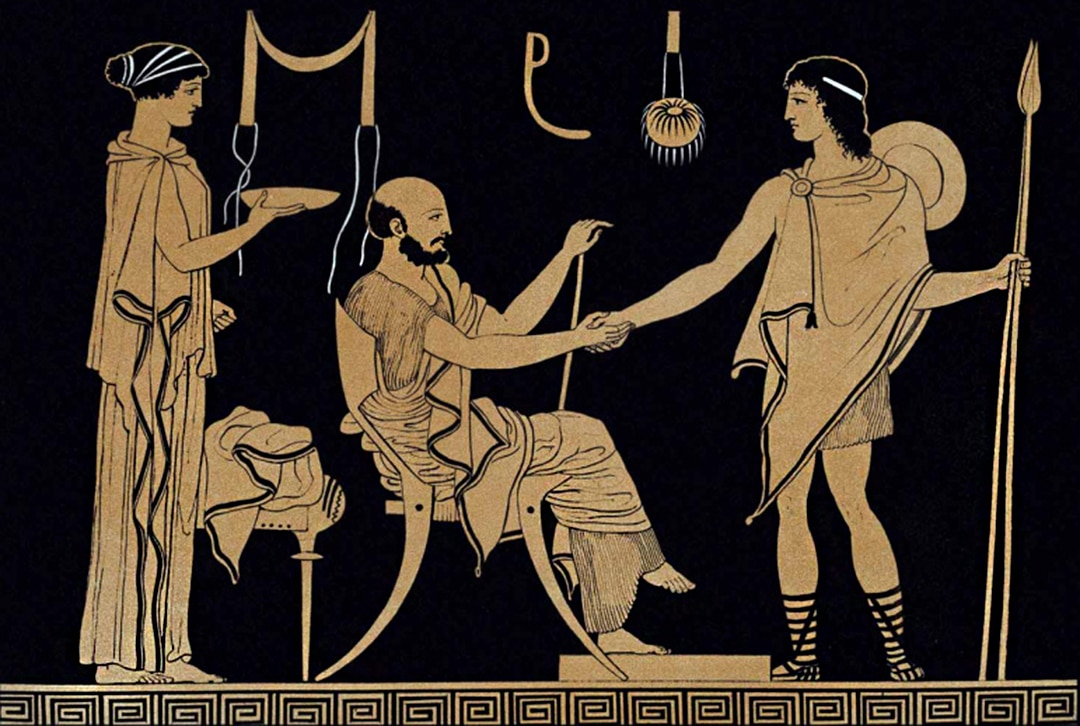
Deep Resistance: Philosophical Practices of Sanity (Part 1)
by W.D. James | Jan 5, 2024
Oh, the wind, the wind is blowing
Through the graves the wind is blowing
Freedom soon will come
Then we’ll come from the shadows
– Leonard Cohen, The Partisani
There are mighty forces arrayed against us. They threaten our liberty, our livelihoods, our families, and even, possibly, our sanity. We may find ourselves, if we are awake at all, resentful or even angry at the situation we find ourselves in. We may want to ‘resist them’. But how? Our governments, except possibly at a local levelii, seem to largely be against us. The corporations, as they always have been, are against us. The media…ditto. The institutions of civil society? Largely captured. Our faith communities? Well, maybe some hope there, but all too often, the same deal. So, what are we to do?
I certainly would not want to eschew overt political resistance. By all means, when the opportunity presents itself, act politically, if only to choose a lesser evil over the greater (and to possibly buy time). However, realistically, a significant political opposition is still largely in the formative stages and an immediate political solution is evasive (though in times of crisis, things can move quickly). Therefore, I’ve been thinking about what are the deep sources of resistance? From whence does resistance grow? How do I need to exist to be capable of resistance? Pray tell, can I even hope to live a good, flourishing life, what the ancient Greeks called eudaimonia, while in a stance of resistance?
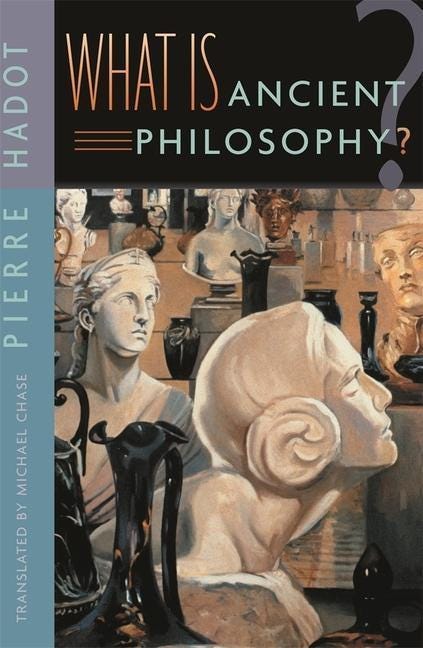
For answers to these sorts of questions, I think we could do worse than turn to some of the ancient Greek philosophers. I’m not suggesting there are no other paths we might follow. There certainly are other paths, and some may even be better. However, the approach of ancient philosophy is a powerful approach that seeks to be open to everyone. In this series of essays, I propose to pick up some central insights from the contemporary French philosopher Pierre Hadot on how philosophy was approached in the ancient world. It was not a sterile academic pursuit, as it all too often is now, but a way of life. As such, it centered on what Hadot terms ‘spiritual exercises’. I will want to look at these spiritual exercises from our current political and existential situation and reinterpret them as ‘practices of resistance’. To that end, we’ll examine the ideas of Diogenes, the founder of the Cynic (Dog) school, and Epictetus, a fundamental source of Stoic philosophy. Preparatory to all that though, let’s turn to Hadot and lay some groundwork.
Philosophy as a way of life
In What is Ancient Philosophy? (2002), Pierre Hadot revolutionized how we think not only of ancient philosophy, but the possibilities of philosophy in general. He sought to overturn the whole paradigm of modern academic philosophy with its logic-chopping and culture of intellectual death. Central to this project was reviving our understanding that philosophy is about how to live, not how to win arguments, and that the ancients were as much concerned about how they lived as about their arguments.
In the central statement of his position, Hadot asserts that:
Philosophical discourse, then, originates in a choice of life and an existential option – not vice versa. Second, this choice and decision are never made in solitude. There can never be a philosophy or philosophers outside a group, a community – in a word, a philosophical ‘school’. The philosophical school thus corresponds, above all, to the choice of a certain way of life and existential option which demands from the individual a total change of lifestyle, a conversion of one’s entire being, and ultimately a certain desire to be and to live in a certain way…. [It is] the application of a certain ideal of life.iii
He is putting forward the notion that first one makes a fundamental choice about what sort of life one wants to live, then we can engage in philosophical dialogue about that way of life. The normative question of the good life comes first, followed by rational reflection and debate. Further, one does not do philosophy all on one’s lonesome. One needs friends, comrades, who are on the same path.
People who are trying to live a certain way, especially if in community with others, do certain things. Hadot wishes to draw our attention to the fact that ancient philosophy was at least as much about living in a particular way as thinking in a particular way. This is because the ultimate objective was to live well and the thinking well was a means to that end. There were philosophical schools that adopted vegetarianism, others that avoided beans (you know, gas), some that did geometry all day long, some that lived communally with their friends, some that went barefoot if not nearly naked, some that carried no purse (and were, therefore, beggars), and some that celebrated ‘love feasts’. He calls these ‘spiritual exercises’, meant to move the novice along the path to wisdom to becoming a ‘sage’. These were:
…practices which could be physical, as in dietary regimes, or discursive, as in dialogue and meditation, or intuitive, as in contemplation, but which were all intended to affect a modification and a transformation in the subject who practiced them.iv
This has several implications. First, life is about acting. Second, the mind and body are not separate: thinking affects our actions and vice versa. One must practice what one preaches and preach what one practices. Philosophy must be lived out. The ‘ethicist’ who is thoroughly immoral will not stand. Nor will the ‘socialist’ who is not working for the collective ownership of the means of production. Nor the ‘anarchist’ who is not challenging the oppression of the moment.
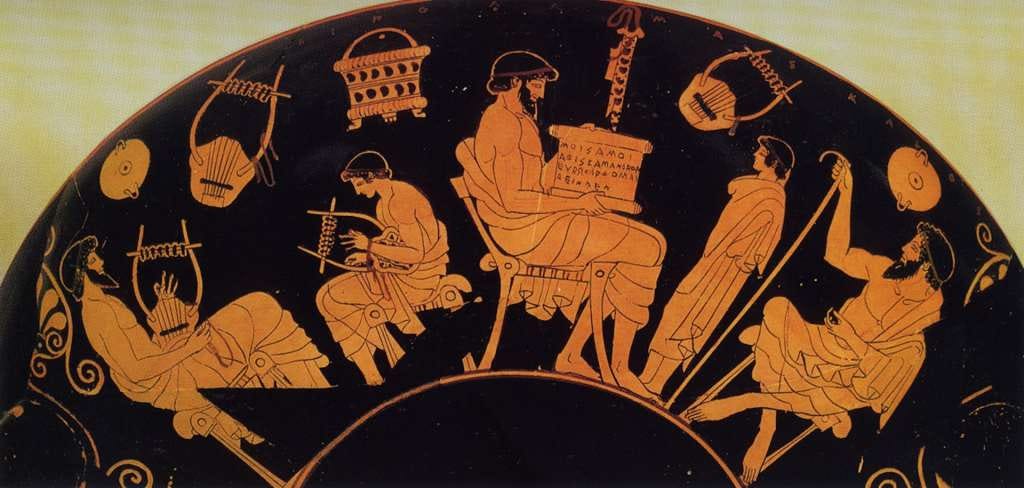
According to Hadot, this is all rooted in the ancient Greek idea of paideia, the ideal of character formation. It is the “desire to form and educate.”v These spiritual practices are meant to ground the individual who practices them in nature, or reality, especially moral reality. Socrates is the figure who looms large here. In the Apology (in the classic sense of a ‘defense’), the account of his trial, Plato has Socrates give this admonition to his fellow citizens of the jury:
Are you not ashamed that you give your attention to acquiring as much money as possible, and similarly with reputation and honour, and give no attention or thought to truth and understanding and the perfection of your soul…? Wealth does not bring goodness, but goodness brings wealth and every other blessing, both to the individual and to the State.vi
Hadot illuminates what the teaching and the living (and the dying) example of Socrates represents:
…all those things that seem to be evil to people—death, sickness, poverty, are not evils for him. In his eyes, there is only one evil thing: moral fault. And there is only one good and one value: the will to do good. This implies that we must not avoid constantly and rigorously examining the way we live, in order to see if it is always guided and inspired by this will to do good.vii
On the one hand, we have what people tend to value. This is the realm of custom (nomos). On the other, we have what is true or reasonable (logos) and real or natural (phusis). The way of life, and its distinctive spiritual exercises, adopted by the would-be philosopher are aimed at helping the self to see through the, often, false values of social custom to the true values grounded in reason and Nature.
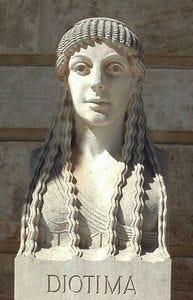
Hadot further follows Plato in defining what philosophy is. The name literally means ‘love of wisdom’ (philo-Sophia). That is, not the possessor of wisdom, but the seeker. In the Symposium, Diotima, a woman who seems to actually possess wisdom, especially of things divine, teaches Socrates about love. Love she shows is a daemon, a spiritual being or force which, in Plato’s thought, serves as a mediator between the earthly and the transcendent. Thus, Hadot shows how the pursuit of the logos will involve an askesis (ascetic discipline), by which the desire for self-transcendence can be actualized. One must reevaluate one’s attachments. One must work through the ‘socialized self’ to the real or natural self to find a grounding for effective transformation. The person who goes through such a self-discipline will be able to live a life characterized by “setting more store by virtue than by pleasure…”.viii
Strategies of Deep Resistance
In the essays that follow, I will seek to show that this very same pursuit of a way of life characterized by spiritual exercises can provide the basis for effective resistance. Hence, I would frame my project as simply a development of Hadot’s thought. We will look at the ways/ideals of life presented by Diogenes and Epictetus to understand what exactly those forms of life look like and what some particular practices they recommend are. We will then look at how these might be of utility in our current political situation; to gain more of the internal strength and radical insight we will need.
The purpose of these exercises will be to create for us a grounding in reality/nature. This will then, in turn, provide the basis from which the self is able to see through (critique) contemporary social customs and ideologies. Such a self is empowered to act from the deep wellsprings of existence against those ideologies and the structures they support.
Further, we will see how structures of domination always entail a turning away from the real and the natural. They are false. Further, they are bad. To the extent that they are internalized by the subject, he or she becomes, strictly speaking, insane (their perceptions and thoughts are separated from reality). To overcome those, first by expelling them from the self, then by eventually confronting them in the social world, is to reclaim our sanity, individually and socially.
Diogenes will provide an extremely down-to-earth and practical, though rather extreme, example of the life lived according to nature. Epictetus, a slave who gives us a theory of freedom and of natural law, will articulate a more balanced, Stoic, way of life.
Dying well

Not to be morose, but death was central to the ruminations of many ancient philosophers. Plato called the pursuit of philosophy a practice in dying and death. He meant something like the soul moving toward transcendent and ultimate truth, which involves a separation between the body and the soul, which is how he defined death. Plato could, sometimes, be rather too dualistic.
Nevertheless, many classical philosophers were renowned for their calm and ‘good’ deaths. Socrates is, again, the archetype here; calmly discoursing with his friends in prison until it was time to drink the hemlock which would carry out his death sentence. He passed over several opportunities to escape this fate, but all of which he felt would have cost him his integrity, which he valued the most. The Stoic Seneca, the ill-fated tutor to Nero, would have the opportunity to emulate his predecessor. Falsely (probably) accused of conspiring against the cruel and corrupt emperor, he was ordered to commit suicide (the upper-class prerogative, to be preferred to the lower-class fate of crucifixion). He too drank poison. But it didn’t do the job. So, he slit his wrists and ankles (or caused this to be done) to bleed himself to death. But the blood wasn’t flowing that well, perhaps an effect of the poison. So, he had a hot bath poured so the warmth would help the blood flow. Reportedly all with great equanimity.
It’s not that these ancients were masochists who had death-fixations or something. They understood that fear was a major obstacle to living a good life rooted in firm principles. The regimes arrayed against us certainly understand the utility of fear. The ability to induce fear is the ability to rob one of life with the threat of death (or all the lesser losses, which just prefigure death). They were all good logicians (of course the root word there is logos): if death is the ultimate root of fear, and you wish to overcome the debilitating effects of fear, best to take on death. Also, most of them, except Plato, in a way, didn’t really believe in a life after death. They really had to figure it out.

Clearly, a good bit of the materialist and hedonistic worldview that the current regime imposes on us has a twofold purpose: if we want some sex and some stuff, the regime can, so far, supply those (happy slaves); if all we want is some sex and some stuff, then the regime need not fear us, because we are creatures of fear with no ultimate resources to resist (compliant slaves). A person, a single person, who overcomes fear, not only is then free to live fully, but is in fact dangerous. A happy rebel. Let us be dangerous.
I think Leonard Cohen was on to some of this. He was on to so much, God rest his soul. In the lyrics heading this essay he talks about the wind blowing through graves. The wind alludes to the spirit or the soul. Moving through the graves suggests having confronted death, but still moving on. That foretells a victory for freedom. The victory to be brought when the ‘partisan’ moves out of the shadows, into open opposition.
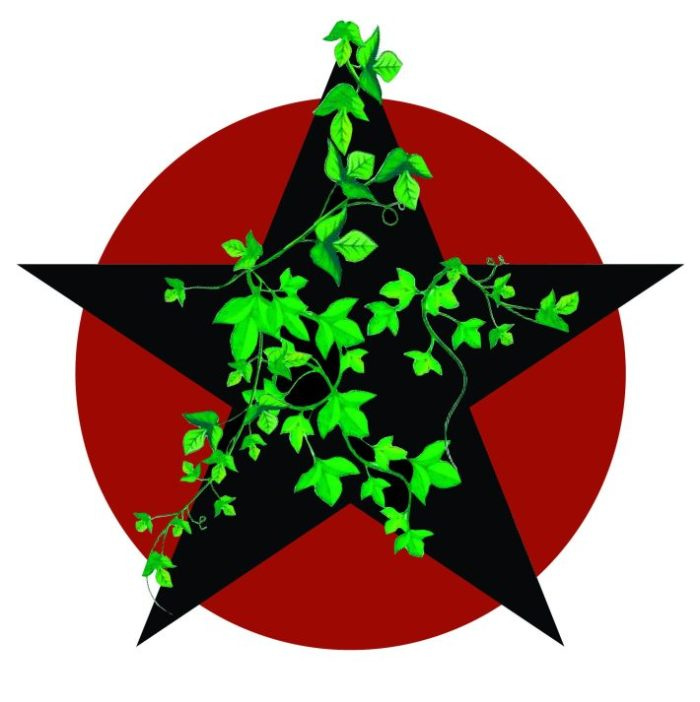
Subscribe to Philosopher’s Holler
i Listen to the whole tune: The Partisan – Leonard Cohen – YouTube
ii In the United States, this is somewhat the case. Some states take measures to resist federal policies and some county governments remain close to the people. In other places, New Zealand for example, local governments may be even more active in pursuing globalist agendas.
iii Pierre Hadot, What is Ancient Philosophy?, translated by Michael Chase, Belknap Press of Harvard University Press, 2002 (original French edition, 1995), p. 3.
iv Ibid, p. 6.
v Ibid, p. 11.
vi Plato, Apology, in The Last Days of Socrates, translated by Hugh Tredennick, Penguin, 2003, p. 56.
vii Hadot, p. 35.
viii Ibid, p. 66.
W.D. James’s essays on Egalitarian Anti-Modernism have now been brought together in a 118-page pdf booklet, which is available to download for free here. Our complete collection of free books can be found here.
This essay was first published on Winter Oak.


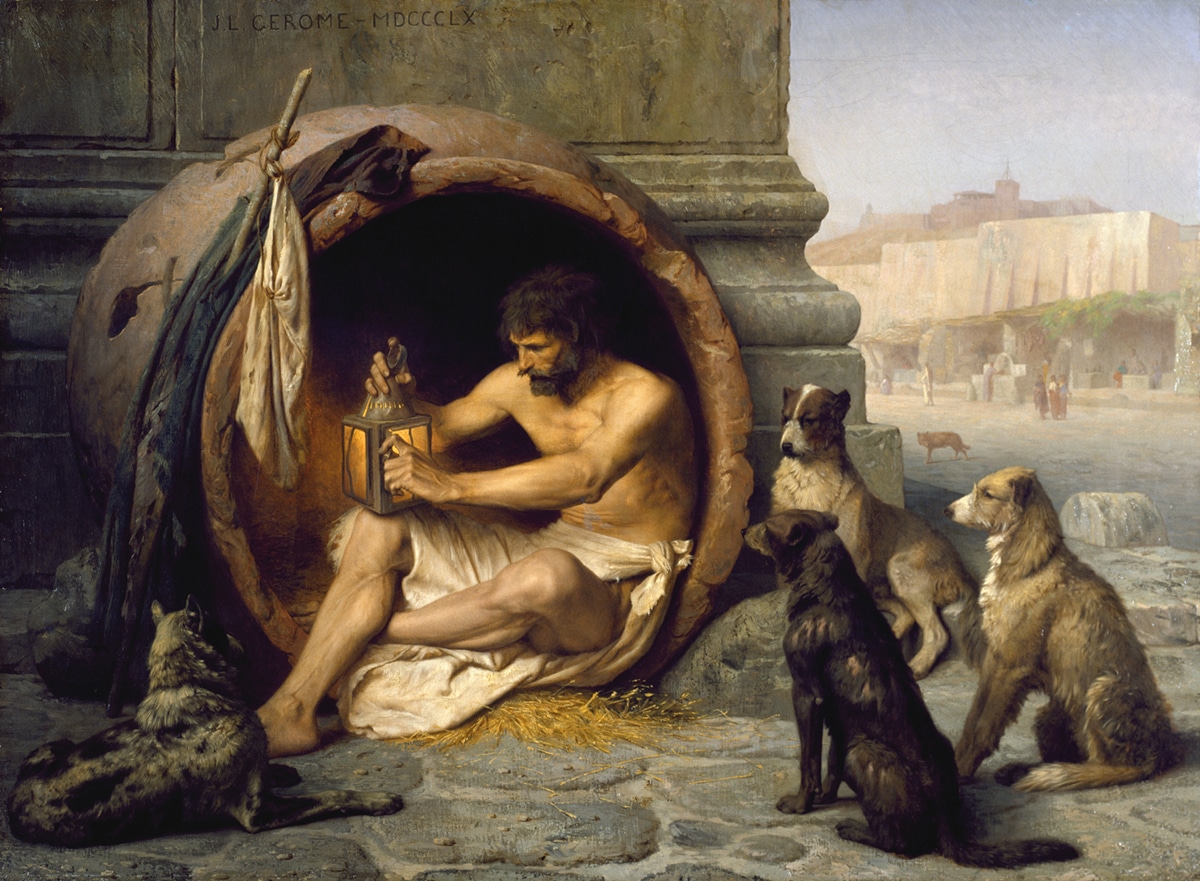
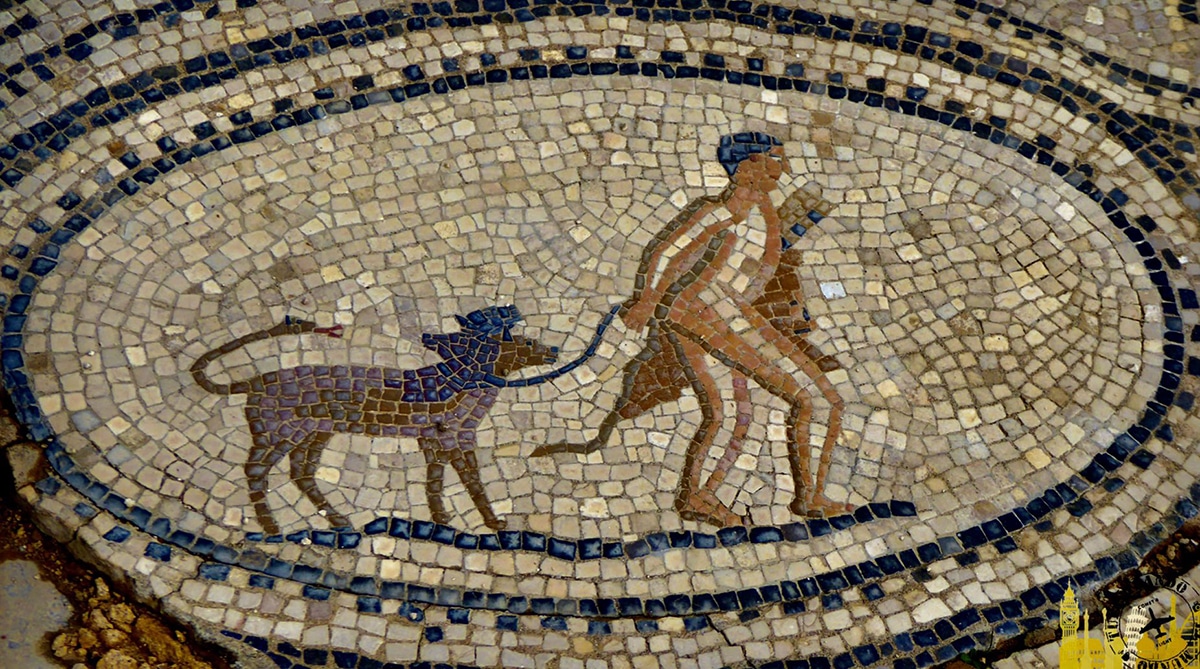

0 Comments